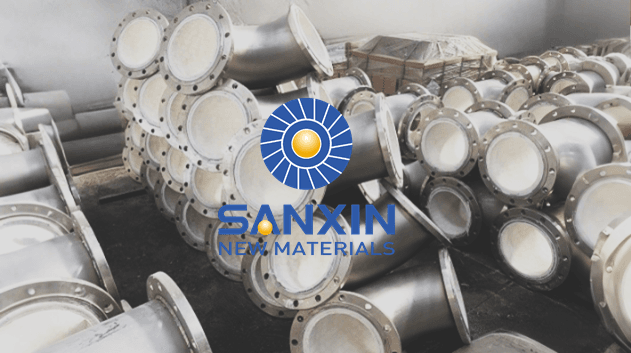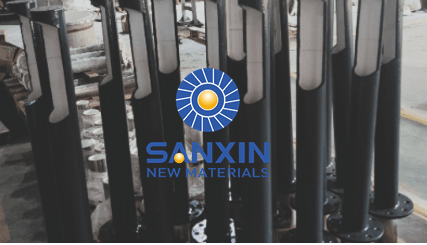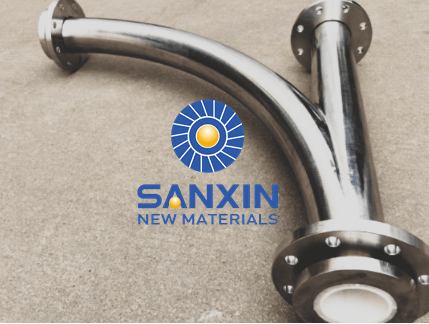The global shift toward electrification, clean energy, and high-efficiency energy storage is fueling unprecedented growth in lithium-ion battery production. From electric vehicles (EVs) to portable electronics and large-scale energy storage systems, lithium batteries are at the core of modern technology. As the demand for higher performance and cleaner production processes intensifies, manufacturers are facing increasing pressure to improve purity, efficiency, and sustainability in every aspect of production.
One area that has become critically important—but often overlooked—is material transport within battery manufacturing plants. Handling sensitive and often corrosive materials like electrolytes, electrode slurry, and nano-powders requires not only precision but also advanced materials that can endure extreme operational environments. This is where high-purity ceramic pipes are transforming the industry.

Ceramic pipes, engineered from high-purity materials such as alumina (Al₂O₃), zirconia (ZrO₂), and silicon carbide (SiC), are highly specialized components designed to meet the unique requirements of lithium battery production. These pipes are known for their:
Superior chemical resistance
Smooth internal surfaces (Ra < 0.5 μm)
High thermal stability
Strong mechanical properties
Resistance to wear, erosion, and contamination
Their performance outmatches that of traditional metal or plastic piping systems, especially in acidic, alkaline, or high-temperature environments common in battery manufacturing.
Widely used due to affordability and good all-round performance
Offers excellent thermal insulation
Highly resistant to chemical corrosion
Perfect for general transport of slurry and electrolyte
Known for superior toughness and fracture resistance
Excellent for high-impact and high-pressure applications
Low thermal conductivity makes it ideal for temperature-sensitive operations
Unmatched in abrasion resistance and chemical inertness
Excellent for transporting highly aggressive or abrasive slurries
Withstands temperatures above 1600°C
Each of these materials can be customized based on the specific process requirements, making ceramic pipes one of the most versatile transport systems in modern battery factories.

Battery production uses various reactive chemicals including acids, alkalis, and organic solvents. Stainless steel and plastic pipes often degrade over time, contaminating materials or requiring frequent replacement.
Ceramic pipes, on the other hand, are chemically inert, offering long-term resistance to even the most aggressive substances. This not only extends the lifespan of the system but also ensures purity in every batch of batteries produced.
The smooth inner surface (surface roughness Ra < 0.5 μm) of ceramic pipes allows for consistent, unobstructed flow of slurries and liquids. This reduces energy consumption, minimizes blockages, and ensures uniformity in coating, mixing, and electrolyte filling processes.
Battery manufacturing includes sintering, drying, and post-processing stages, which often involve exposure to high temperatures. Ceramic materials are engineered to withstand thermal shock and sustained heat, making them ideal for these stages.
Contaminants such as metal ions can significantly impair the electrochemical performance of lithium batteries. Ceramic pipes are non-reactive and non-leaching, maintaining ultra-high purity standards essential for producing high-performance cells.
Due to their hardness and wear resistance, ceramic pipes can operate under high flow rates, abrasive conditions, and mechanical stresses with minimal degradation—reducing the need for maintenance or frequent replacement.

Slurry and powder transport systems use ceramic pipes to handle abrasive materials like graphite, lithium carbonate, and metal oxides.
Silicon carbide and alumina ceramics offer superior abrasion resistance in this stage.
Uniform and pure slurry flow is critical during coating and drying stages.
Ceramic pipes ensure consistent viscosity and particle distribution.
Smooth flow paths reduce turbulence, enabling precise electrolyte dispensing.
Avoids cross-contamination and maintains electrical stability of the electrolyte.
Supports dry rooms, vacuum environments, and thermal chambers.
Pipes maintain their shape and performance even under extreme vacuum or pressure conditions.
SANXIN New Materials is a global leader in ceramic engineering, specializing in:
Ceramic milling balls
Nano powders and nanoparticles
Abrasion-resistant ceramics
Wear-resistant ceramics
High-performance ceramic pipes and fittings
The company offers tailored solutions for various sectors including lithium battery production, pharmaceuticals, mining, and advanced material science.

Submit your demand,
we will contact you ASAP.

Sanxin New Materials Co., Ltd. focus on producing and selling ceramic beads and parts such as grinding media, blasting beads, bearing ball, structure part, ceramic wear-resistant liners, Nanoparticles Nano Powder

